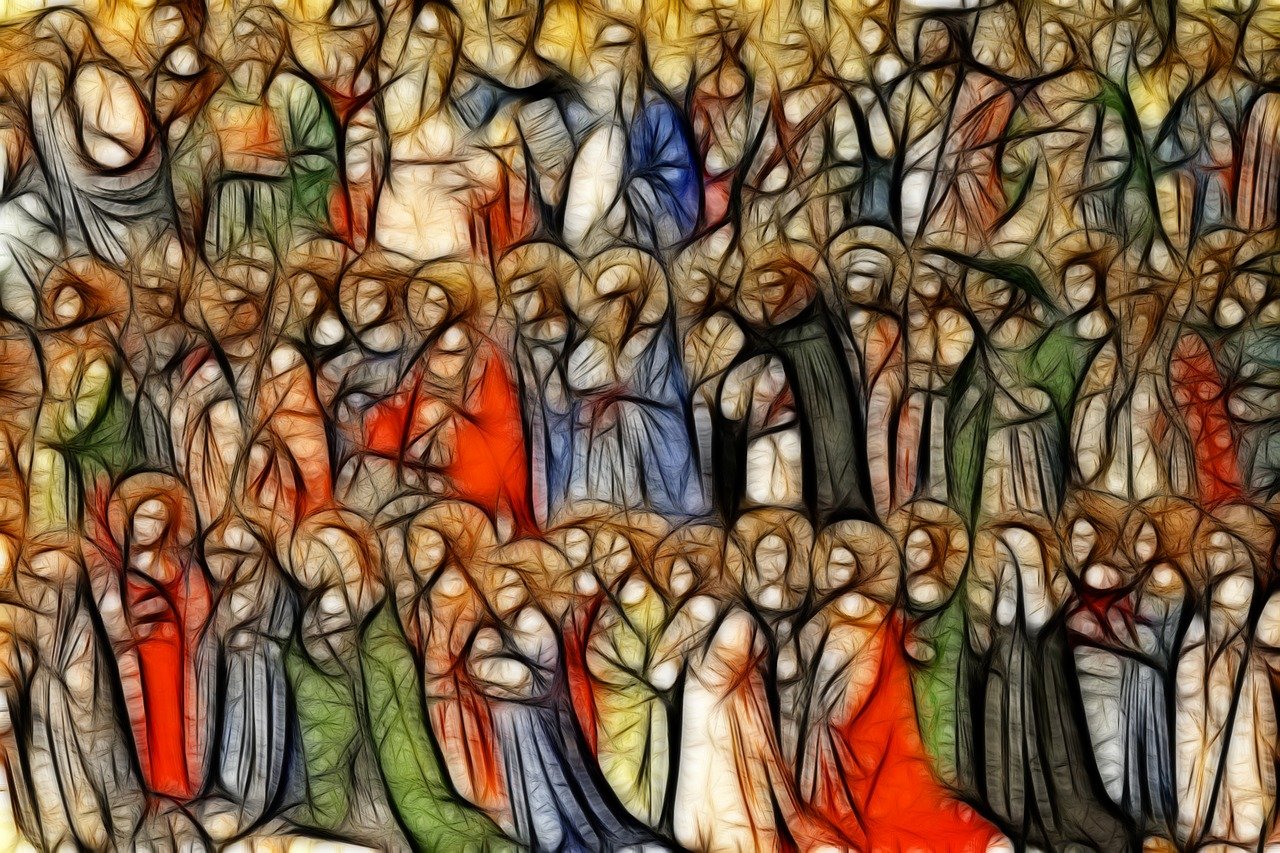
Year C

Discover the deeper meaning and connections found in this week's readings, through these great commentaries written by our priests.

Explore this week's readings and hear what God is saying to us through His Word.

Find out more about how we can mark this special day in our liturgy.

See our music recommendations for the liturgy.
Apocalypse 7
The Book of Revelation (the Apocalypse) uses many images to illustrate the triumph of Christ and his followers, who gain glory through suffering and persecution. The reading begins by speaking of a symbolic number of Jewish martyrs, 12000 from each of the twelve tribes. Then it describes an immense number of Gentile martyrs from every nation and language, offering praise to God and to Christ. By depicting Christ as the Lamb, the text points to his passion, in which the martyrs have shared by their faithful death. In an apparent contradiction, these martyrs have washed their robes white in the Lamb’s blood. Christ’s death redeems us from our sins. In many countries of the world, Christians can face martyrdom for practising their faith. In our country, we may not be called to martyrdom, but like the martyrs we are called to be dedicated to Christ.
Psalm
Today’s psalm encourages us to seek God’s face. May we long to see God face to face in heaven.
1 John 3
God lovingly welcomes us as his children, though we are unworthy. Because of our hope of seeing God face to face in heaven, we seek to live pure lives on earth, turning away from distractions. The promise is that by his grace, we shall become like him, transfigured by his love. This promise is not just for us as individuals but for the whole Christian community. Our hope is to be raised to eternal life as the church of saints.
Matthew 5
Sometimes our preaching focuses on saints who were popes or bishops, monks or friars, who certainly gave great witness to Christ. But we can forget that most of the saints in heaven are good uncanonised people, who did their best on earth and now enjoy a heavenly reward. The gospel for this feast does not speak of great gifts of preaching. Instead, it describes the daily efforts and sufferings of countless people. The poor in spirit know that they are spiritual beggars, aware that they depend entirely on God. Power over the earth is not promised to the bullies, but to the meek and gentle. Life may not consist of one celebration after another, but rather of a series of sorrows and challenges. Doing right may cost us an easy life. Where some people are harsh, the disciple of Christ is merciful. In a world of many distractions, the true disciple keeps a pure heart. In a society full of division, the real disciple speaks and acts to make peace. For the sake of what is right, Christ’s disciples can face persecution. It is by their fruits, rather than by external success, that true disciples are known. We can draw inspiration from good people we have known who have shown us these qualities.
All Saints (1st November) is transferred as it falls on a Saturday. Therefore, All Souls is pushed to 3rd November.
There are no more “green” Sundays until January 18th due to All Saints, Dedication of the Lateran Basilica, St Edmund of Abingdon (diocesan patron), Our Lord Jesus Christ, King of the Universe, Advent, Christmastide, and Baptism of the Lord.
For a brief theological treatment of the saints in heaven, see CCC para.828, 946-958. Also, see the texts for today’s Mass, which are rich in content:
We “honour” (Entrance Antiphon and Prayer over the Offerings) and “venerate” (Collect) the saints. We rely on them as “intercessors” (Collect)who are “concern[ed] for our salvation” (Prayer over the Offerings). They give us “strength and good example” (Preface).
The Mass texts present an eschatological vision of the Church moving toward the “heavenly Jerusalem” (Preface) and “the banquet of our heavenly homeland” (Prayer after Communion).
The Communion Antiphon is a quotation from today’s Gospel (the Beatitudes) that gives the characteristics of saintly life and its rewards.
There is a Solemn Blessing that may be used. It speaks of the intercession and good example of the saints and the eschatological hope of us becoming “citizens of heaven”.
Eucharistic Prayer 1, including the lists of saints, would be especially suitable for today.
Note: These hymns have been chosen from different sources.
All ye who seek a comfort sure (CFE31, L212)
For all the saints (CFE176, L371, LHON260, TCH166)
Holy God, we praise thy name (L708)
Key
CFE - Celebration Hymnal for Everyone
L – Laudate
LHON – Liturgical Hymns Old and New (Mayhew, 1999)
TCH – The Catholic Hymnbook (Gracewing)

Do you have questions about the liturgy and how we are called to participate in it? Explore how the Church councils, saints, and popes have answered this key question and many more.

Every movement of the Mass is rich in meaning but we can become over-familiar with it. Rediscover the Mass and explore how it relates to the Exodus story, where many of its rituals come from, and how it makes Jesus present to us today.